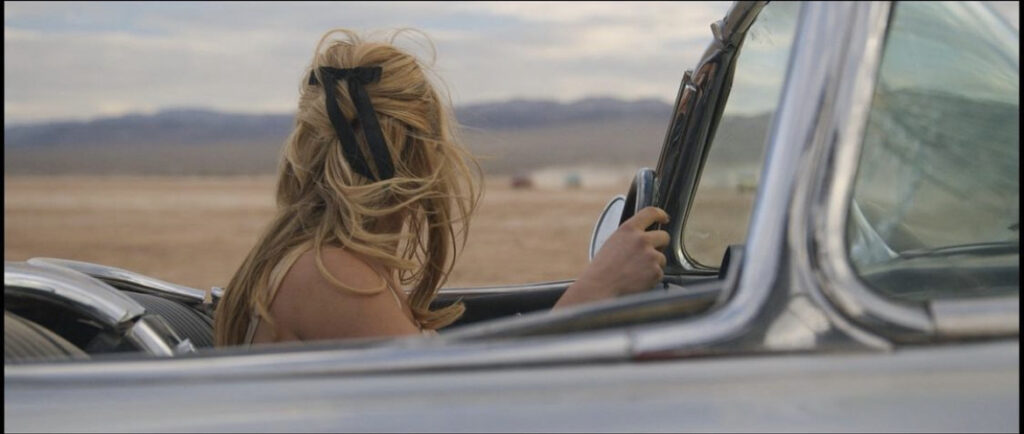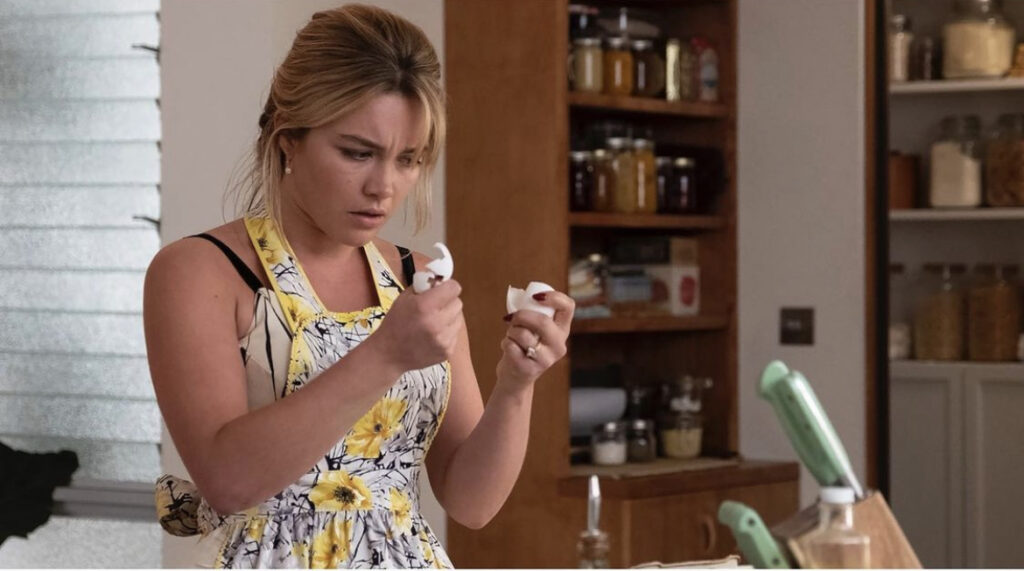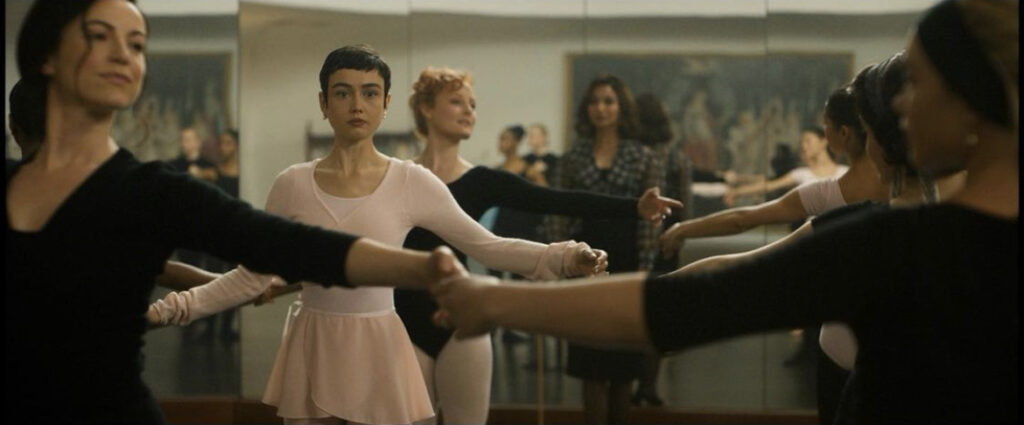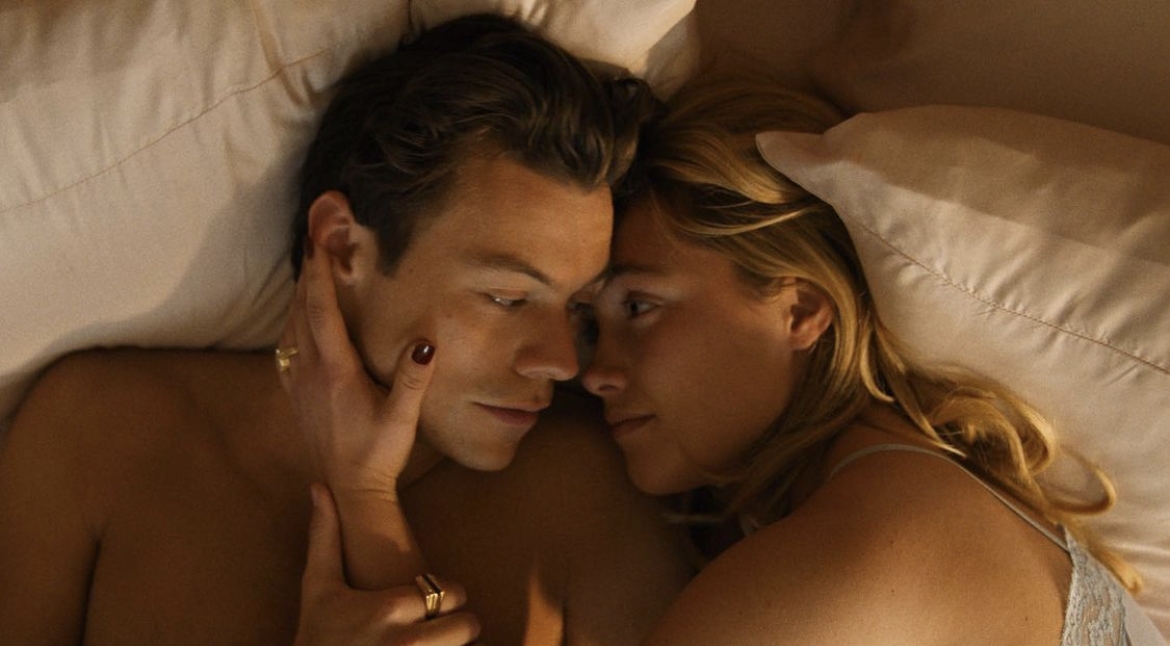Editor’s Note: This article contains spoilers for “Don’t Worry Darling.”
Following her directorial debut “Booksmart,” Olivia Wilde makes her way into the psychological thriller genre with her latest film “Don’t Worry Darling,” released on Sept. 23. With its star-studded cast that includes Florence Pugh and Harry Styles, the film has topped the North American box office by taking in an estimated $19.2 million amidst reports of off-screen disputes among the cast and director.
Based on the story of the same name by Carey Van Dyke, Shane Van Dyke and Jatie Silberman, “Don’t Worry Darling” centers around a 1950s housewife named Alice Chambers (Pugh) who begins to suspect something sinister about the idyllic town called Victory where she lives with her husband, Jack (Styles). It is also home to other married couples, such as Bunny (Olivia Wilde) and Dean (Nick Kroll), Violet (Sydney Chandler) and Bill (Douglas Smith), and Frank (Chris Pine) and Shelley (Gemma Chan).

The desert town is run by its charismatic founder, Frank, who started the Victory Project that intends to better their society with highly innovative technology. However, he only selects the husbands of the community to work with him. All husbands have sworn to secrecy of not revealing anything about the Victory Project to anyone, including their wives.
However, the women of the town also play a crucial role: to attain the “ideal” life. Every morning, all the wives make breakfast for their husbands as they leave for work in their identical, fancy cars, driving off into a desert where the headquarters is located. While they await for their husbands to come home, the wives do daily chores, dance ballet and cook dinner. The only rules to follow: do not enter headquarters and stay in the safe zone.
After her friend Margaret (Kiki Layne) goes insane after entering the headquarters, Alice learns about the perilousness of the Victory Project and she soon begins seeing hallucinations that bring her one step closer to the truth: the entire town is a simulation.
Their physical bodies still belong in the real world while their physical eyeballs are being forced open by metal clasps — hypnotized by Frank’s eerily calming voice and black and white montages of mesmerizing ballerinas dancing.

In spite of Pugh’s phenomenal performance and the film’s glitzy costume style, excellent set design and gripping cinematography, “Don’t Worry Darling” still falls short on being considered a feminist film. Wilde attempts to tackle the “happy housewife heroine” that Betty Friedan mentioned in her iconic 1963 novel “The Feminine Mystique.” However, it comes off as superficial, cyclical and overly fathomable as it contributes little to nothing towards what we already know about female mistreatment in society and the domestic sphere.
“Don’t Worry Darling” may be blessed with other talented actors like Pine and Chan to grace the screen, but the difference in range of acting experience from each actor is strikingly obvious. For instance, this film is singer Harry Styles’ second acting stint after “Dunkirk,” and his inexperience as an actor is evident in Jack Chambers, whose character demands great complexity and emotions, a mark Styles fell short from. Given the magnitude of Styles’ fame among Generation Z, it is understandable that fans are likely to look past his imperfections. From a filmmaker’s perspective, his one-dimensional performance may be detrimental to the film due to lack of acting uniformity that may impact the audience’s immersive viewing experience.
The film is also riddled with endless plot holes, such as the reasoning behind Frank’s creation of Victory and Margaret’s backstory. Not only does Margaret serve as the catalyst that kicks off Alice’s suspicions of the town, but she also instigates the whole domino effect that gradually leads to the collapse of Victory — cementing her role with great importance. If her character was given the screen time she deserved, “Don’t Worry Darling” would have benefited from more consistency and relevancy.
To make matters worse, Layne recently revealed that most of her scenes with her on-screen husband Ted (Ari’el Stachel) were cut out of the film, which only added onto the ongoing criticism targeted towards Wilde in regards to lack of professionalism and for creating a hostile work environment.
Controversy began to arise when Wilde and Styles were rumored to be dating during filming. Around the same time, it was announced that Wilde and her fiance Jason Sudeikis were ending their engagement after seven years together with two children, prompting speculations of Wilde having an affair with Styles on set. It was also rumored that there was tension between Pugh and Wilde during filming for various reasons, such as Pugh believing Wilde included too many gratuitous sex scenes between her and Styles’ character.

Initially, Wilde claimed to have fired Shia LaBeouf and replaced him with Styles due to his sexual abuse allegations from his former partner, English singer-songwriter FKA Twigs, but LaBeouf later shared screenshots of text messages and a video from Wilde that proved that he quit the project and she actually wanted him back. This implies that she completely dismissed Pugh’s concerns of working with LaBeouf. After the interactions, Pugh began promoting “Don’t Worry Darling” less and announced that she was skipping the premiere press conference at the Venice Film Festival, which turned out to be an awkward gathering. From Styles allegedly spitting into Pine’s lap, to Pine supposedly “astral projecting,” it was unclear what the cast was up to.
It is still unclear whether the release success of “Don’t Worry Darling” is due to viewers’ interest in the cast drama or the film itself. Regardless, it is alarming when the cast drama becomes more entertaining than the actual film plot.
Though the drama could have been planned by the PR team of “Don’t Worry Darling,” the film is still praise-worthy to a certain extent. It would have been worthwhile if its ending provoked a shocking revelation instead of many head scratches.
Annabella Johan is an Arts & Entertainment Editor for the 2022-23 school year. She can be reached at ajohan@uci.edu.

